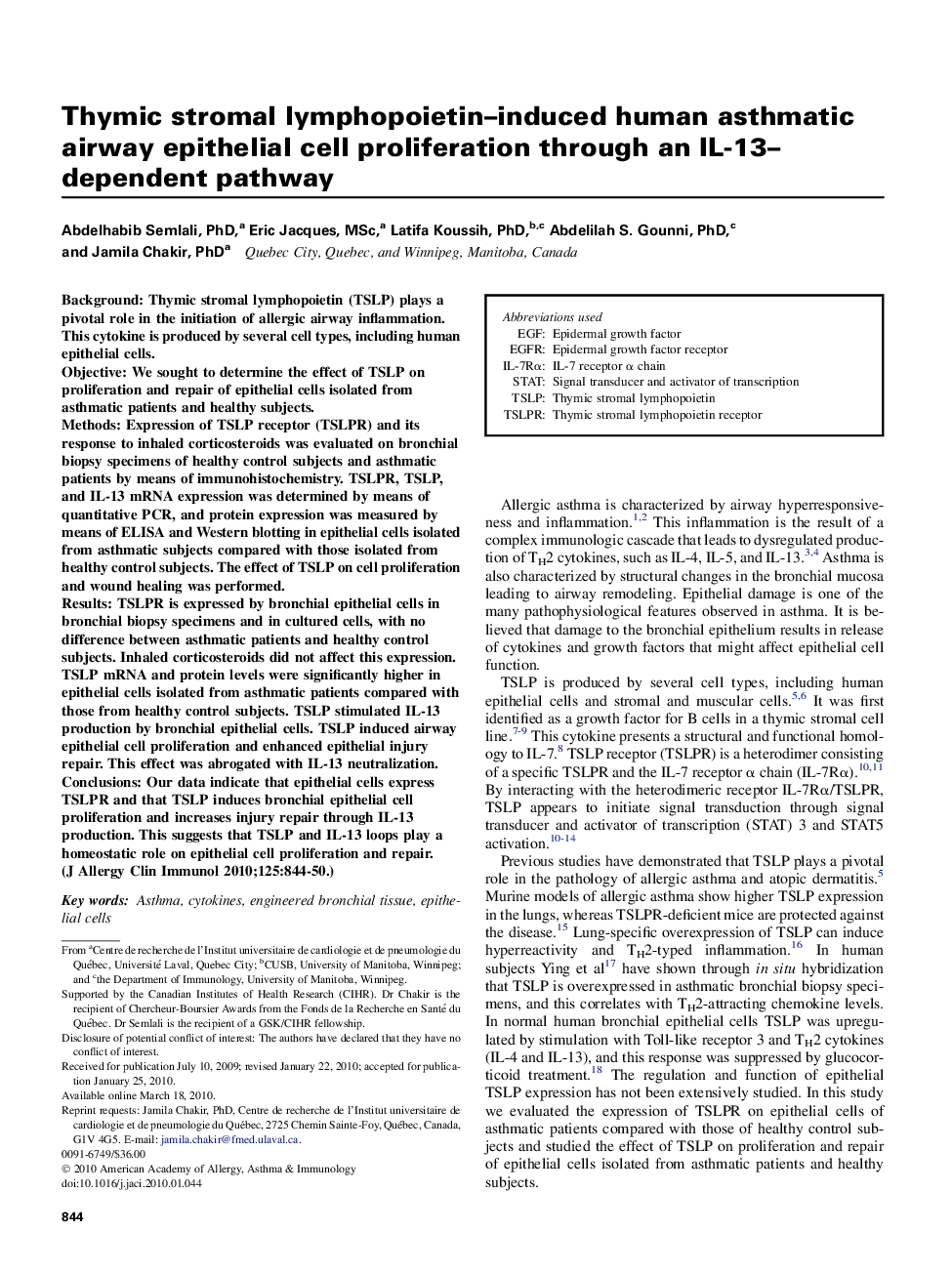| Article ID | Journal | Published Year | Pages | File Type |
|---|---|---|---|---|
| 3199549 | Journal of Allergy and Clinical Immunology | 2010 | 7 Pages |
BackgroundThymic stromal lymphopoietin (TSLP) plays a pivotal role in the initiation of allergic airway inflammation. This cytokine is produced by several cell types, including human epithelial cells.ObjectiveWe sought to determine the effect of TSLP on proliferation and repair of epithelial cells isolated from asthmatic patients and healthy subjects.MethodsExpression of TSLP receptor (TSLPR) and its response to inhaled corticosteroids was evaluated on bronchial biopsy specimens of healthy control subjects and asthmatic patients by means of immunohistochemistry. TSLPR, TSLP, and IL-13 mRNA expression was determined by means of quantitative PCR, and protein expression was measured by means of ELISA and Western blotting in epithelial cells isolated from asthmatic subjects compared with those isolated from healthy control subjects. The effect of TSLP on cell proliferation and wound healing was performed.ResultsTSLPR is expressed by bronchial epithelial cells in bronchial biopsy specimens and in cultured cells, with no difference between asthmatic patients and healthy control subjects. Inhaled corticosteroids did not affect this expression. TSLP mRNA and protein levels were significantly higher in epithelial cells isolated from asthmatic patients compared with those from healthy control subjects. TSLP stimulated IL-13 production by bronchial epithelial cells. TSLP induced airway epithelial cell proliferation and enhanced epithelial injury repair. This effect was abrogated with IL-13 neutralization.ConclusionsOur data indicate that epithelial cells express TSLPR and that TSLP induces bronchial epithelial cell proliferation and increases injury repair through IL-13 production. This suggests that TSLP and IL-13 loops play a homeostatic role on epithelial cell proliferation and repair.
